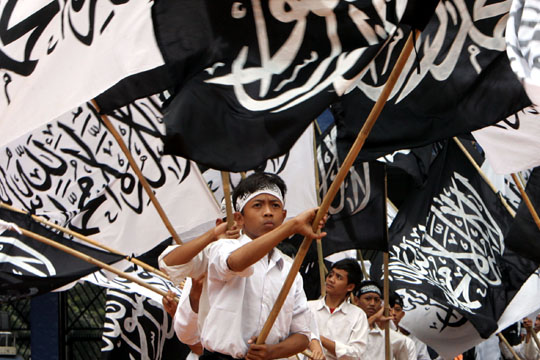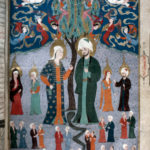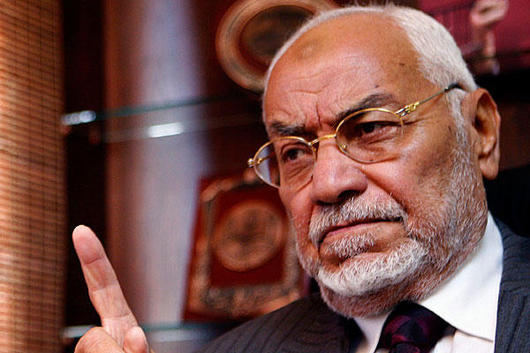
First of all it should be said that the controversy over this concept comes from the very description of Islam as a religion and a state, for this description does not stop at religious restrictions, but extends inter alia to legislation on matters such as marriage, divorce, inheritance, the division of war spoils, and how one is to punish violators of those laws.
BY ADIL HAFIZ
IN THIS SENSE the Prophet Muḥammad is the founder of political Islam, for which reason the religion’s shaykhs strongly protest against the term ‘political Islam’. On the site Islamic website Ṣayd al-Maqāṣid Shaykh Salmān bin Ṣāliḥ al-Kharāsh says:
Westerners and their agnostic followers want for the religion of Islam what they want for other religions: to confine them to man’s relationship with his Lord concerning matters of the Hereafter alone, without religion having authority and domination over the people in this world. This is why they stove hard for the idea of separating religion from politics.
It is said that the first to make use of the idea of a political Islam was Shaykh Muḥammad Rashīd Riḍā when he named countries that called Islam the religion of the state. There was also the article of Dr. Muḥammad ‘Amāra:
I am not happy with the term political Islam, since it comes from a lack of understanding of the religion of Islam.
Many shaykhs and preachers have written along these lines, such as ‘Alī Ṣadr al-Dīn Bayatounī, Dr. Sājid al-‘Abdalī Assistant Secretary-General of the Kuwaiti Salafist Movement, Ja‘far Shaykh AdĪs from Sudan, Mahdī ‘Ākef the former Guide of the Muslim Brotherhood in Egypt and author of the phrase:
‘Nationality’ is Islam – Miṣr (‘Egypt’) and Abū Miṣr be damned! For nationality is Islam. If only the Muslims of Malaysia could rule over us!
The programme of the shaykhs and leaders of the current Islamic groups
This programme is a natural extension of the ideas of the Islamic groups that emerged after the First World War, particularly following the fall of the Islamic Ottoman Caliphate and the rise of fascism in Europe. It is consistent with the general goal of these earlier movements, which is that Islam is a political, economic, social and legal system suitable for building state institutions. Propaganda campaigns using this term expanded with the beginning of the colonial era and its domination over Islamic countries, when there was a grieving for the loss of the Islamic empire and feelings of a decline in Islamic authority in the hearts of Muslims after the fall in 1924 of the Ottoman Caliphate and its last bastions at the hands of Kemal Atatürk, for all its positive and negative consequences.
Their belief is that a systematic implementation of Islamic law will restore the global leadership and moral sovereignty to Muslims
Many Islamic movements emerged with a clear goal: to revive the Islamic Nation, reform Muslim societies and restore their former glory, despite the lack of complete consensus about the main reason for this backwardness and decline, when once the Islamic nation dominated the world. Everyone agrees, however, that this decline began centuries ago, and some thinkers maintain that the reason the Muslims lost authority and power is that they abandoned Islamic law, the divine law that requires its followers to be religious. They assume that once Muslims follow the true law, they will again achieve glory just like their Muslim ancestors. The best way to organize society, therefore, is according to the divine law, and it is because Muslims abandoned this divine path to success, they lag behind other civilizations.
This is the basic hypothesis underpinning the movements that are generally referred to under the rubric ‘political Islam’, such as the Islamist groups in South Asia, the Muslim Brotherhood in the Arab world and others. Their belief is that a systematic implementation of Islamic law will restore the global leadership and moral sovereignty to Muslims.
The social influence of the forces of political Islam
This may be summarised as striving hard to intimidate people that their worldly life is nothing but a preamble for the Hereafter, and the establishment of an Islamic state is a means to re-implement Sharia in the lives of Muslims and re-establish Islam as a global power.
It should be noted that not all Islamic groups and institutions fall under the name of ‘political Islam’, only those Islamic movements and groups that believe that Islam is a comprehensive political system that integrates religion with governance and that all Muslims must follow this as a religious duty. It is worth mentioning that the movements for Islamic change, despite their common visions and goals, actually differ in the methodology of jihad; some of them espouse ‘da‘wā jihad’, such as the Muslim Brotherhood movement in Egypt and in the Arab world, the Wahhābī movement and the Islamic Group in Pakistan founded by the writer, theorist and journalist Abū al-‘Alā Maudūdī the originator of the slogan ‘Governance is for God’, the Islamic Society of Bosnia and Herzegovina, the Islamic Renewal Party in Afghanistan, the Pan Islamic Assembly of India which allied itself with Gandhi, the Uighur Islamic party in China and finally the Islamic Group in Egypt, which its most prominent leader Omar Abdul Rahman, who died in an American prison.
Islamic group theorists see describing Islam with this term as deficient, and even consider it suspect
Some of these groups rely on armed struggle and are called ‘jihadist’ movements, most notably among these are Al-Qaeda, which is an international organization, and ISIS, which is also a global organization. Then there is the Afghan Taliban movement, Boko Haram, the Movement for the application of the Sharī‘a Muḥammadiyya, the Hay’at Taḥrīr al-Shām, the Islamic Movement of Uzbekistan, Anṣār al-Sharī‘a, Jundallāh, Anṣār al-Islām in Kurdistan, Anṣār al-Islām in Burkina Faso, the Caucasus Emirate in Russia, Hezbollah in Lebanon, the Ḥarakat al-Nujabā’ in Iraq, the Mahdist Movement in Sudan, the ‘Asā’ib Ahl al-Ḥaqq in Iraq, the Mahdi Army of Iraq, the Ḥaqqānī Network in Afghanistan, the Jamā‘at-e-Islāmī in Southeast Asia, Indonesia, Malaysia, the southern Philippines, Singapore and Brunei. These are linked to Al-Qaeda and the Taliban, and to the leaders, intellectuals and theorists of these groups: Osama bin Laden, Sayyid Quṭb, Abū al-‘Alā Maudūdī, Ḥasan al-Bannā’, Muḥammad Iqbal, Amīn Iḥsān, Karam Zuhdī, ‘Abd al-‘Azīz bin Bāz and Ibn ‘Uthaymīn in Saudi Arabia, and Shaykh al-Ḥuwaynī and Muḥammad Ḥassān in Egypt.

Suggested Reading
You might wonder where the term ‘political Islam’ appeared from, and the answer is that it did not come from the Islamists themselves, but from several books by American historians, including the writer Martin Kramer in 1980. Here it can be concluded that it is a Western, Orientalist, secular term that gained broad currency at the beginning of the 1980s. Islamic group theorists see describing Islam with this term as deficient, and even consider it suspect since Islam, they argue, emerged as a faith and a sharī‘a, unlike Christianity which emerged purely as a faith and called for giving to God what is God’s, and to Caesar what is Caesar’s – with God compensating on the Last Day whatever people were deprived of in this world, instead of marshalling the struggle to take back their usurped rights.
The main themes of political Islam in public discourse
These may be listed as follows:
– Pre-Islam was darkness and ignorance (jāhiliyya)[1] and Islam came as a reformer and a saviour;
– The Rightly-Guided Caliphate represents the optimal period of rule, a system in which justice and equality prevailed; Muslims should fight for the return of such government;
– Islam was not spread by the sword (although the 13-year call to Islam attracted no more than thirty-nine converts before the migration to Madīna) and Islam presents the ideal for human behaviour and clarifies how Mankind should deal with each other in love, solidarity and brotherhood, and how there must be justice and fairness in governance and in the distribution of wealth;
– The reason for the backwardness of Muslims is their distance from the teachings of the faith. It is therefore necessary to go back and cling to the teachings of the Lord and actions that derive therefrom;
– The causes of the backwardness in Islamic countries is due to colonialism alone.
This is a time where Islam and its political forces have turned into a threat to society, because they spread hatred of the other on a basis of religious confession particularly when they succeed in gaining power, as happened in Egypt, Iraq, Afghanistan, Iran and elsewhere. It is precisely because they apply Sharī‘a law, something that looks backward in time and derives its examples from that time without considering all the tremendous developments and their future potential, especially in the field of women’s rights and human rights generally.
[1] On this term see Glossary.

